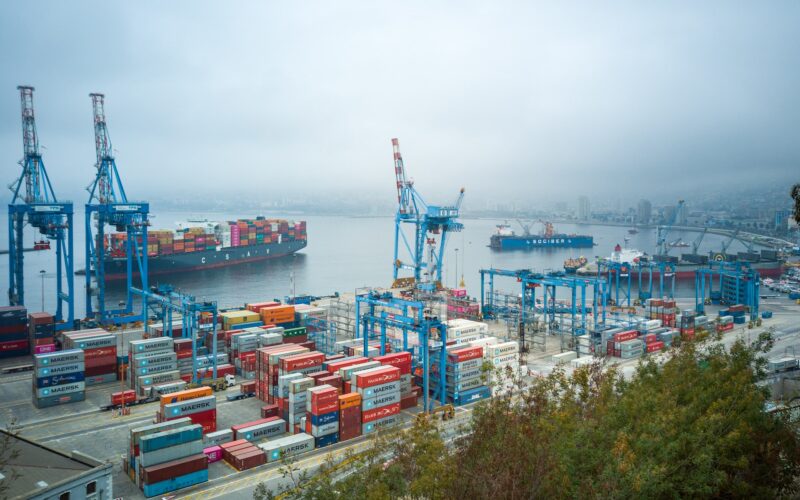The businesses involved in the supply chain really can’t seem to catch a break these last few years. First, of course, they had the effects of the pandemic to deal with. And now, there is the worrying implication of inflation to tackle. Every aspect of the supply chain is, in one way or another, affected by it. In order to take a closer look at the situation, let’s examine the effects of inflation on the supply chain.
The increased price of operation
The first of the effects of inflation on the supply chain is the increased price of operation. This is one of the reasons why, in spite of another record quarter, things are not looking great for the industry. Unfortunately, when we say increased operation costs, we do mean it holistically. Every single aspect of running a business has become more expensive. The price of fuel has continued to trouble logistics businesses and their truck fleets. The cost of supplies has remained high. And, of course, the difficulty of finding qualified workers and truck drivers necessitates higher pay in order to actually be competitive in the market. All of which, put together, paints a somewhat grim picture. It forces the supply chain of every business to strain under the increased costs, which cut into profits and make it more difficult to maintain operations.
Lower demand
The effects of inflation are hardly only felt directly. As the experts from Professional Movers Canada can attest, a bigger problem is the gradual decline in demand. Both for goods and services! The inflation has left plenty of people struggling to make ends meet. This, in turn, means that an average consumer’s a lot less likely to spend money on anything that’s not essential. For the businesses which deal in essentials, this is not entirely bad news since they can sell their goods even at the increased prices. However, for everyone else, this is a serious crisis. With how expensive it is to transport things already, not being able to sell the goods once they arrive at their destination is a further blow to the profitability of these businesses.
Shipping concerns
Interestingly enough, out of all the parts of the supply chain, the businesses involved only in transportation are actually weathering the crisis the best. Of course, this is not entirely true for every type of transportation business. Truck fleets, as we touched on before, have been rather heavily impacted. However, air and maritime transport are doing rather well. Especially the latter as the impact of the pandemic on container availability wears off. Those involved with container shipping had actually managed to improve their financial situation somewhat during the container crisis. This naturally means they have a lot more leeway when it comes to dealing with the current crisis in the form of the effects of inflation on the supply chain.
Supplier problems
We have covered some of the issues faced by those businesses involved the most deeply with the supply chain. However, the very ‘beginning’ of the supply chain is facing its own problems. And here we are talking about suppliers, or, in other words, the businesses that produce all the goods transported. In a way, they are facing lots of the same challenges as logistics and trading companies. In spite of repeated attempts to find ways to reduce operating costs, it is just not feasible to really minimize the effects of inflation. Which, of course, necessitates an increase in the cost of the produced goods themselves. Does the trouble for suppliers end here? Of course not. Most ‘small’ suppliers work with other ‘small’ companies. And as the prices ratchet up, their business partners are having increasing trouble affording the prices.
Trouble with obtaining working capital
Speaking of being able to afford things, due to the effects of inflation on the supply chain, businesses are being forced to deal with yet another challenge. Namely, the fact that they must struggle to maintain normal operating funds on their own without any external assistance. Why is this a necessity? With the worsening inflation to account for, banks and even governments are being forced to increase their interest rates to keep up. This makes it impossible for businesses to get their hands on ‘cheap’ investment money. If they need a sudden influx of funds, they are forced to pick between cannibalizing their budgets and getting into what could turn into serious debts. On the other hand, ignoring the necessity of funds is not exactly a viable option either. Especially when they are often used for nothing more than to keep a business afloat.
The danger to smaller businesses
Everything we have discussed so far on the subject of the effects of inflation on the supply chain contributes to one fact: smaller businesses are flagging. As you learn more about global logistics and the supply chain, it becomes rather apparent that it takes a wealth of experience and deep pockets to weather this crisis. Some businesses would have to be prepared to run in the red for a while just to make it through. As a result, any business that cannot do this will almost assuredly start to struggle rather quickly if the inflation does not abate. Unfortunately, this mostly targets small and family-run businesses. The sort of businesses that start as and stay mostly ‘local’. Which, in turn, may further exacerbate some of the effects of inflation.
Final comment
As should be amply apparent, the effects of inflation on the supply chain are not at all good. Pretty much every business that relied on the supply chain for profit and continued operation is being forced to adapt and struggle with the new circumstances. Of course, things are still not insurmountable. As things stand, most businesses should be able to weather this additional challenge and wait out the inflation. If things get worse, however, the overall forecast is likely to get much darker.













